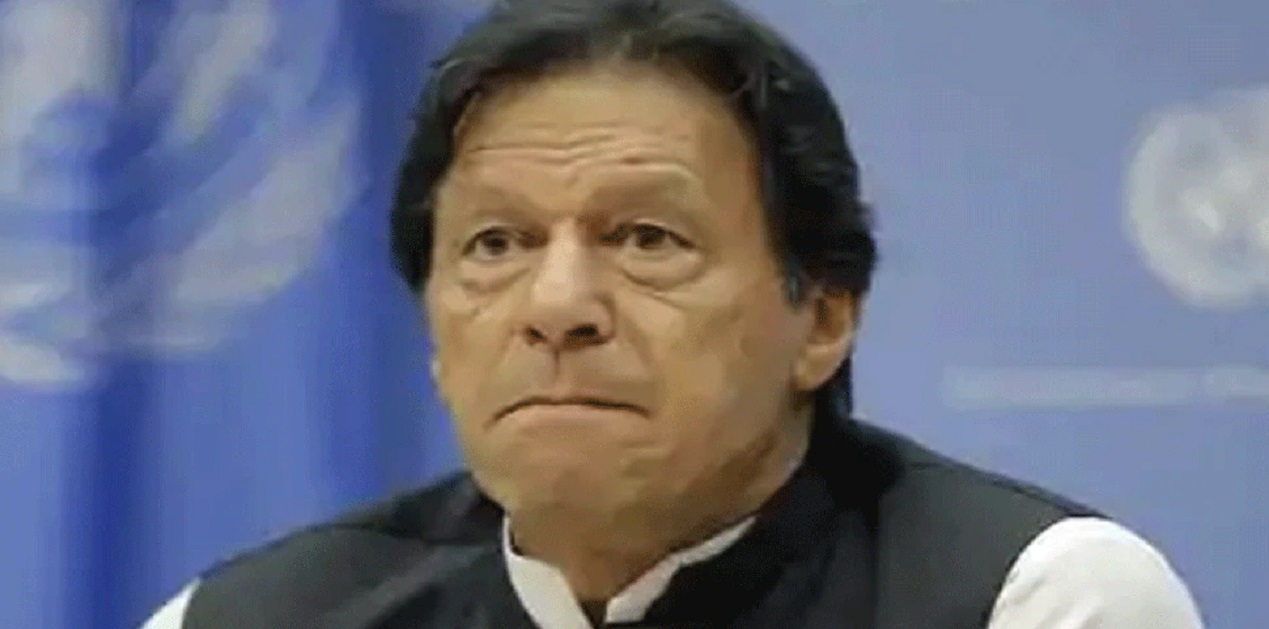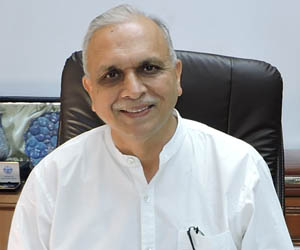Imran Khan government is on a slippery slope. The trust between the government and the army has been dented on the curious case of the appointment of the new DG ISI. The two sides are no longer on the same ‘page’. This spells trouble for the government. Many analysts in Pakistan are predicting an imminent downfall of the Imran Khan government.
Lt General Nadeem Anjum, the new DG ISI, is set to assume charge of DG ISI on 19th November 2021. His appointment was announced way back on 6th October in a unilateral notification issued by the Pakistan army. Unexpectedly, PM Imran Khan objected to the announcement stating that the appointment had not been cleared beforehand from him, as the rules required. He also openly stated that he would like the see Lt Gen Fayaz Hameed, the incumbent DG, continue for some more time. Lt Gen Hameed is believed to be a staunch supporter of Imran Khan.
Thus began a crisis, which is now spiralling out of control. Although, Imran Khan finally endorsed General Bajwa’s choice but not before insisting on a panel of generals and interviewing three of them including Lt Gen Nadeem Anjum. This unprecedented public show of independence vis a vis the military damaged the so far cosy relationship with the army. The army had played a major role in the ‘selection’ of Imran Khan as the Prime Minister in 2018. The ‘hybrid’ system of military-civil governance had worked reasonably OK since 2018. The army did not withdraw support despite countless missteps of the Imran Khan government on the policy front. But, as per Pakistani analysts, the latest episode has destroyed the hybrid system. It will be difficult to restore the trust.
In the last few months, the situation in Pakistan has worsened on multiple fronts. The economic situation is precarious. The inflation is in double digits, the debt burden is growing, having reached nearly 100 percent of the GDP. Ordinary people are suffering due to high prices of petroleum, sugar and wheat flour. The Financial Action Task Force (FATF) has retained Pakistan on its grey list. The talks with the IMF have stalled. The IMF is insisting on tough conditionalities like raising energy prices and broadening the tax net. The Pakistani rupee has depreciated alarmingly. The only saving grace is the inflow of remittances from overseas Pakistanis at about USD 2 billion a month. But that is not enough. Recently, Saudi Arabia provided some relief by parking USD 4 billion in Pakistani banks and deferring the payment for oil imported. But such ad hoc measures will not save the economy from sinking further. Economic productivity in Pakistan is low due to high-interest rates and numerous other factors.
Gen Bajwa, in a much-publicised speech in April this year, had signalled a change in Pakistan's foreign and security policies. He said that Pakistan wants normal relations with its neighbours. Henceforth, Pakistan would focus on geoeconomics and leverage its location to build connectivity. He also pitched for Pakistan to become a normal state instead of a security state that it has become. But nothing has come from those assurances. Relations with India, centred on Kashmir and Kashmir alone, have remained tense. The installation of the Taliban in Afghanistan, much hailed by Imran Khan, is proving to be at best a pyrrhic victory for Pakistan.
Religious groups have got new wind in their sails due to Imran Khan’s ambiguous and inconsistent policies. The government faced embarrassment when it was compelled to enter into a secret agreement with the religious party Tehrike Labaiq Pakistan (TLP) after banning it one day and then rescinding the decision overnight. Violence prone TLP has considerable street power and has been demanding the expulsion of the French ambassador to Islamabad. Apart from the TLP, the government is now trying to appease the Tehrike Taliban Pakistan (TTP), a terrorist group that enjoys shelter in Afghanistan and also the Taliban’s support. The government has come under criticism for starting negotiations with the TTP which was responsible for the Army Public School (APS) attack
Imran Khan’s difficulties are multiplying. He is coming under pressure from all sides. Even the judiciary is turning agast him. He was summoned by the Pakistan Supreme Court and asked why action had not been taken against the high and mighty including the former army chief Raheel Sharif, who were in charge when the APS attack took place. The government has one month to file its response. The government is unlikely to be in a position to take action as suggested by the Supreme Court.
With the departure of Gen Fayaz and the arrival of Nadeem Anjum, the message has gone out to the political parties that the military establishment, which had brought Imran Khan to power, is no longer keen to support him further. The Imran Khan government has a razor thin majority in the National Assembly. Its coalition partners PMLQ and MQM are now getting restless. They have started criticising the government for not consulting them and taking their support for granted. The opposition parties have once again become emboldened. The Peoples Democratic Movement, the conglomeration of JUI, PPP and PMLN, which had staged several rallies earlier this year but had lost steam, is once again getting activated. It held a mass rally in Karachi recently and is planning more such rallies shortly. It is believed that Shahbaz Sharif, Navaz Sharif’s brother, is in touch with the military establishment. Even Maulana Fazlur Rehman, the head of PDM, has begun to praise the military publically.
The political climate in Pakistan has changed rapidly and become adverse to Imran Khan. If the military support is withdrawn, Imran Khan will not last. His dream of building a Naya Pakistan and establishing Riasat-e-medina, an Islamic Welfare State, has been scattered.
Analysts in Pakistan are speculating that the military establishment has decided to do away with Imran Khan but as yet there is no decision as to what should be done ahead. One scenario is that the establishment changes course and instead of supporting the PTI, it supports PMLN under the leadership of Shahbaz Sharif. Another scenario is that fresh elections are held.
It also remains to be seen how Imran Khan will react. Will he do something desperate? Will he give in without a fight? What are his options? There is no clarity at this sage. General Bajwa has not opened his cards as yet.
How long will the Imran Khan government linger on? One cannot be too sure. Pakistani analysts give varying estimates – from a few days to a few months. But many feel that the days of the government are numbered. Pakistan is entering a phase of uncertainty. Afghanistan is already facing a difficult future. That is quite a handful for the region. India will have to be alert and ensure that its security interests are not jeopardised due to these developments.
(The paper is the author’s individual scholastic articulation. The author certifies that the article/paper is original in content, unpublished and it has not been submitted for publication/web upload elsewhere, and that the facts and figures quoted are duly referenced, as needed, and are believed to be correct). (The paper does not necessarily represent the organisational stance... More >>
Image Source: https://english.cdn.zeenews.com/sites/default/files/2021/04/22/931327-imran-khan.gif










Post new comment